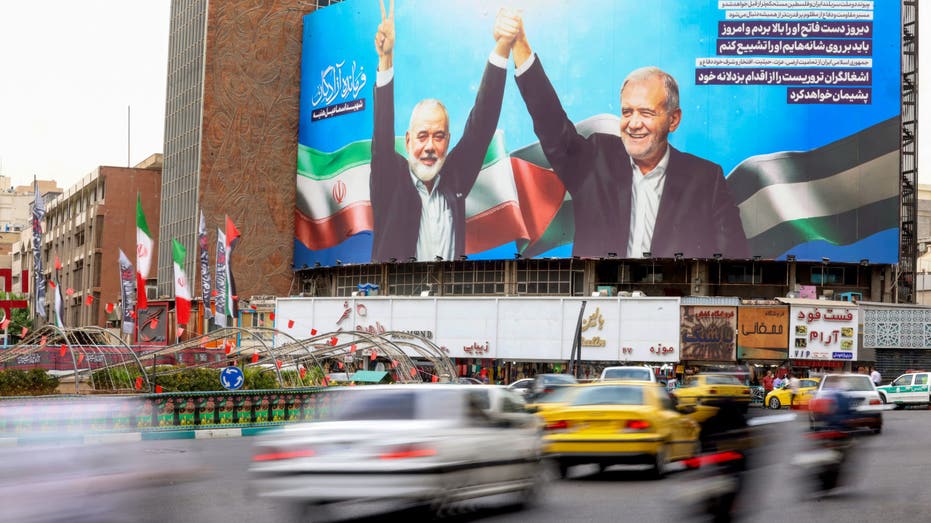Iran's new president asserts right to retaliation in rare phone call with major US ally
The Middle East remains on a knife's edge as European and Arab nations alike brace for Iran to strike Israel over the death of Ismail Haniyeh last month.

Newly elected Iranian President Masoud Pezeshkian stressed his country’s right to retaliation against Israel in a rare phone call with the United Kingdom.
British Prime Minister Sir Keir Starmer made clear to Pezeshkian during the 30-minute call that "war is not in anyone’s interest" and urged Tehran to "refrain from attacking Israel." The call followed a joint statement from the heads of the United States, the United Kingdom and three other European countries.
The Iranian president, however, insisted that a strong response to an attack "is a right of nations and a solution for stopping crimes and aggression,"
"The support of some Western countries for the Zionist regime is irresponsible and contrary to international standards since it endangers regional security by encouraging the Zionist regime to continue its crimes," Pezeshkian reportedly told Starmer.
Tensions remain high after Israel’s alleged assassination of Hamas commander Ismail Haniyeh, who was in Tehran at the time of his death. Iran denounced Haniyeh’s murder and blamed Israel, even though Haniyeh died in what was later deemed a localized explosion that killed no Iranian citizens.
International pressure from European and Arab nations alike did not seem to dent Iran’s desire to avenge the commander of one of its most prominent proxy groups.
Regional sources this week told Fox News foreign correspondent Trey Yingst on Monday that they are concerned Iran and its proxies could attack Israel within the next 24 hours in retaliation for the killing of Hamas political leader Ismail Haniyeh in Tehran late last month. No attack materialized in that time, but it did not dampen concerns.
Hamas representatives on Sunday declared they would not participate in new negotiations for a cease-fire in Gaza unless mediators presented a plan based on previous talks. The representatives insisted that the group had shown "flexibility" throughout the negotiation process but that Israel – through actions such as the alleged assassination of Haniyeh – indicated it was not serious about a cease-fire agreement.
Iranian Supreme Leader Ayatollah Ali Khamenei ordered his forces to "harshly punish" Israel for the killing of Haniyeh, and Islamic Revolutionary Guard Corps deputy commander Ali Fadavi told Iranian media last week that the orders would be "implemented in the best possible way," according to Al Jazeera.
Israel this week conveyed to the United States and several European allies that any attack from Iran – even if it does not kill any Israelis – will lead to another retaliatory strike on Iranian territory, the Times of Israel reported.
The statement aimed to preempt another round of international pressure that would try to stop Israel from responding forcefully.
Tensions continue to slowly ratchet up across the week, with Iranian banks on Wednesday suffering a major cyberattack that all but crippled the institutions, according to Israeli outlet i24 News. Hackers stole information belonging to account holders and hit several other banks.
Iran has not yet blamed Israel, and no other nation or party has claimed credit, but Iran blamed the U.S. and Israel for the last major cyberattack to hit the country.
Fox News Digital's Greg Norman and Bradford Betz and the Associated Press contributed to this report.






















